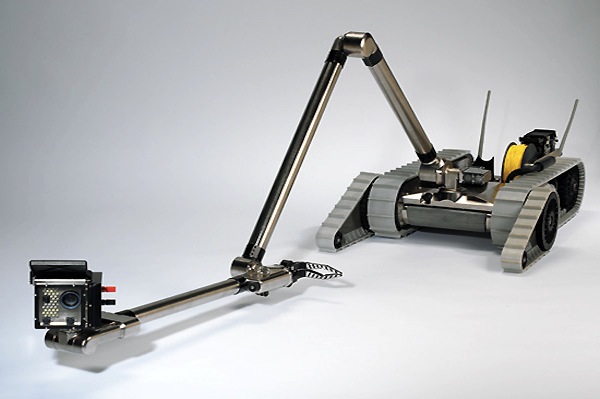Yes, it is possible to survive in space without a space suit, for about 10 to 15 seconds that is. Space is such a powerful, uncontrollable, and unexplainable place. With astronomers estimating at least one hundred billion galaxies in the universe and even the closest planet, Venus, being 261 million kilometers from earth, we have no way to fully fathom the vastness of outer space. However, we do know that it can, and someday will, kill us.
If anyone, like myself, has wondered what would happen to a human who is in outer space without a space suit, there are many different possible outcomes. Each one sounding more and more painful and torturous than the last. First, we will look at the three things that would happen to the human body right away. Secondly, we will see what happens to the body after death in space. Lastly, we will review two studies, one done by the Brooks Air Force Base in Texas and the other done by Jim LeBlanc in 1965.

The Three Forms of Torture
Explosion? No. Inflation? Yes.
Contrary to what we were told as children, our bodies would not explode in outer space. Nevertheless, it would inflate. Paul Sutter, Astrophysicist, writes for Space.com exactly how this would happen. Sutter talks about nitrogen levels in our bloodstream, the nitrogen will cause our skin to inflate into small bubbles. This is called ebullism.
Ebullism is when bodily fluids form gas bubbles because of reduced pressure. This means that not only would the nitrogen cause our skin to bubble up, but all of our bodily fluids will too. This consist of; tears, saliva, and any liquid found elsewhere in the body. Although, this wouldn’t be the first thing to kill you, this would just make you feel and look like a shaken up bottle of soda.
One exception to this is our blood. Our blood would not boil or bubble, but our blood circulation would be at risk. This could lead to many other risks and problems that are mentioned below. This leads us to question why our blood wouldn’t boil? According to the National Aeronautics and Space Administration Gooddard Space Flight Center, because our blood is located in our blood vessels the pressure is controlled internally. Therefore, a change in pressure outside of the body wouldn’t affect our blood the way it does our saliva and other bodily fluids.
Lack of Oxygen
Fifteen seconds. That is it. A human has fifteen seconds worth of oxygen in their body. This means that after the body losses oxygen, you’re likely to lose consciousness. With that being said the WORST thing a human can do in space without a space suit would be to hold their breath. Due to the lack of pressure in space, the oxygen located inside the lungs would expand causing the lungs to rupture inherently causing death.
Sunburn and Frostbite at the same time?
Another consequence of being in space without a suit is an extreem sunburn, while facing frostbite. Without the protection of the earths atmosphere, the UV rays, X-rays, and gamma rays would not only burn your already bubbling skin, but also damage your DNA. This means that if survival was miraculously achieved you would likely end up with not only cancer but a horrendous sunburn.
As your body is being burnt to a crisp, it will also freeze to temperatures colder than and ice cube, but not instantly. Despite spaces’ insanely cold temperatures, freezing wouldn’t happen right away. The body would freeze eventually because heat leaves the body slower than oxygen, therefore a person would die before actually freezing.
Do bodies decompose in space?
Hypothetically, if a human were to end up in space without a suit, we need to understand what would happen after death. UCSB ScienceLine says that the three most rapid forms of decomposition of a human body on earth is biological, with the help of scavengers (insects and animals), and heat degradation. After all three, chemical exposures will take care of the remains. Although, this would not happen in space. Oxygen is needed for decomposition, but in space no oxygen is present. Therefore, the outcomes would be either mummification or it would freeze. The only way that mummification would take place would be if the body was near a heat source. The process of natural forms of mummification is explained by Kathryn Meyers Emery here. Additionally, if the body froze, it would take millions of years for decomposition to take place.
On a side note, above is only applicable if a body is in space without a space suit. If an astronaut were to die in space while wearing a space suit, decomposition would happen, because our bodies need oxygen to decompose. The oxygen in the suit would allow for decomposition, but only for the length of time that the oxygen regulates through the suit.
Either way, in a suit or not, the human corpse would be floating around in the universe for possibly millions of years.

Spacesuit Vacuum Test
Due to the fact that a human has never actually been in space without a suit, we must look to the following test to find our information. On December 14, 1966, Jim LeBlanc accidentally became the only human to survive space like conditions. NASA dressed Jim in a “Moon suit” and then put him in a triple-doored vacuum chamber. Little did NASA, or LeBlanc know that the pressurization hose was disconnected, in ten seconds time LeBlanc’s suit would go from 3.8 psi to 0.1 psi. Not only was the hose disconnected, but Michelle Starr with CNET, says that LeBlanc’s suit had a leak. Leblanc states that the saliva on his tongue boiled and then after fourteen seconds LeBlanc became unconscious. However, he survived, it was a very risky experience that could have gone a completely different way. To watch the full test click this link here.

Brooks Air Force Base
*I would like to note that I do not agree with this experiment*
In 1965, the Texas Air Force Base exposed dogs to the vacuum like effects of space. The findings found that when exposed to ninety seconds or less, the dogs would survive; but at two minutes or more, the dogs would always die. Each dog was unconscious and paralyzed while undergoing the study. Anna Gosline, from Scientific American, says that the dogs suffered many side effects while undergoing the study. The side effects were as follows; seizures, simultaneous defecation, vomiting, urination, swelling and ice formed on their tongues. After about ninety seconds, the dogs would be exposed to normal pressures, and the swelling would go down. After fifteen minutes, the dogs were able to walk and breathe again.
Again in 1965 and 1967, NASA did the same study, but this time on Chimpanzees. The findings showed that chimps lasted three and a half minutes in the space like vacuum conditions. To NASA’s surprise, all but one chimp had no cognitive defects.

Yes, A Human can survive in space without a suit
As shown through both experiments, it is possible, although not recommended unless freezing to death, getting a horrific sunburn, feeling your lungs explode, and feeling your bodily fluids bubble sounds appealing. Luckily, we live in a day where space suits have been invented, therefore allowing us to study space. None of our space exploration would have been made possible without the work of some very smart individuals. I feel privileged to live in such a world that we are able to attain this knowledge.
Citations
- Physics.org. “How do we know how many galaxies are in our universe?” Link
- Williams, Matt. Universe Today. “What Is The Closest Planet To Earth?” May 2016. Link
- Liqui Search. “What is ebullism?” Link
- Astrophysicist Team. Nasa.gov. “How would the unprotected human body react to the vacuum of outer space?” June 1997. Link
- UCSB ScienceLine. “If an astronaut died in space, would he decompose?” Link
- Emery, Kathryn Meyers. Bones Don’t Lie. “Preservation: When Bones Don’t Decompose” April 2013. Link
- Azriel, Merryl. Space Safety Magazine. “Jim LeBlank Survives Early Spacesuit Vacuum Test Gone Wrong”. November 2012. Link
- Starr, Michelle. CNET. “What happens to the unprotected human body in space?”. July 2014. Link
- Gosline, Anna. Scientific American. “Survival in Space Unprotected Is Possible – Briefly”. February 2008. Link
Media Citations
Video
- You Tube. “Space Suit Testing” June 2010. Link
- You Tube. “How Long Could You Survive In Outer Space?” November 2014. Link
Photo
- Pics about space. Wall 321 Link
- Rose, Brent. Gizmodo. “Inside the Chamber Where NASA Recreates Space on Earth”. November 2014. Link
- Clark, Douglas. Weekly Science Quiz. “Dangers of a Vacuum”. February 2013. Link

















 pic found
pic found  graph found
graph found 































